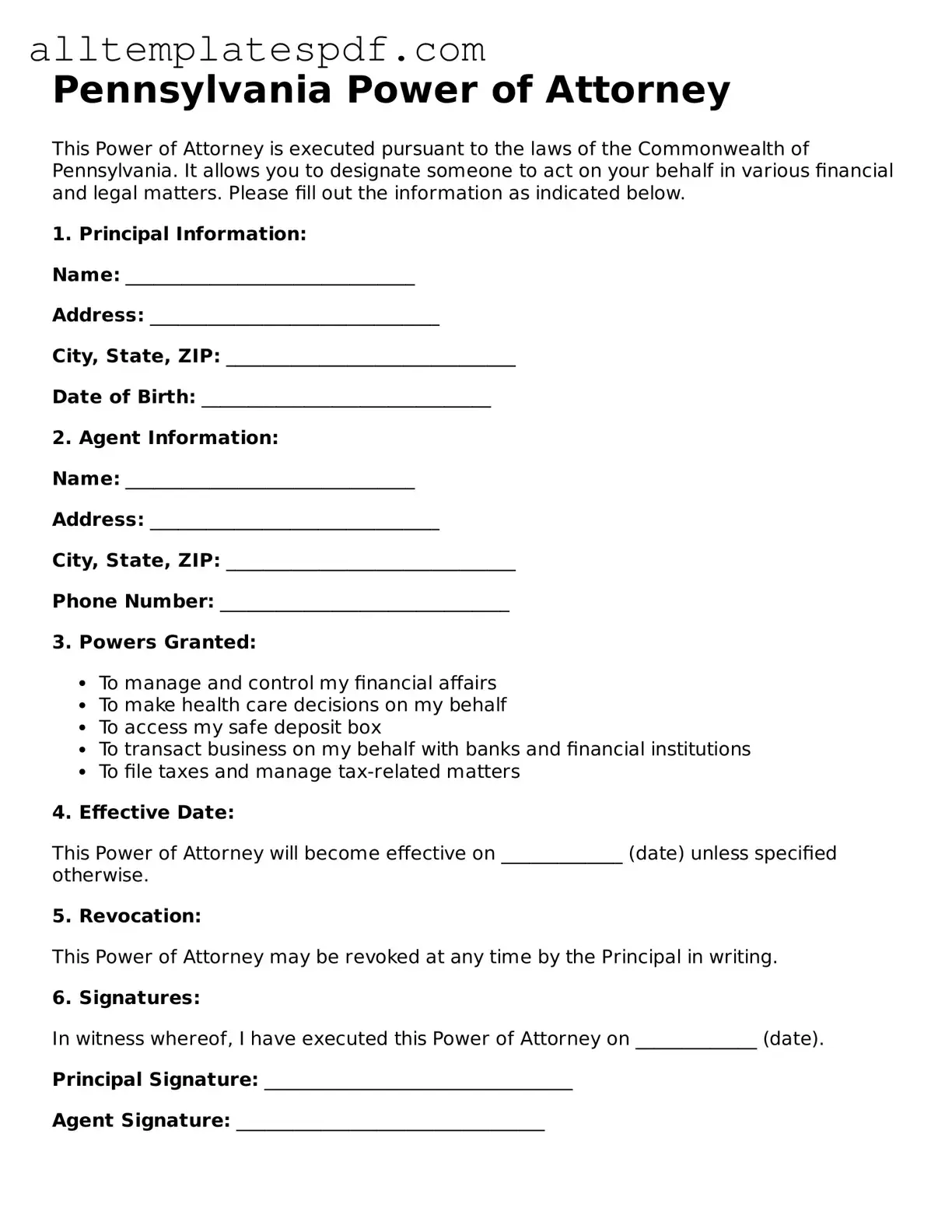Filling out the Pennsylvania Power of Attorney form can be a straightforward process, but many individuals make common mistakes that can lead to complications. One frequent error is failing to specify the powers granted to the agent. It is essential to clearly outline the authority given to the agent, whether it is for financial matters, healthcare decisions, or both. Without this clarity, the document may not serve its intended purpose.
Another mistake is neglecting to date the form. A Power of Attorney must be dated to ensure it is valid. If the date is missing, it could lead to disputes about when the authority was granted. This can create confusion and potentially invalidate the document.
People often forget to sign the form in the presence of a notary public. In Pennsylvania, a Power of Attorney must be notarized to be legally binding. Skipping this step can result in the document being considered invalid, leaving the agent without the authority to act on behalf of the principal.
Additionally, individuals may overlook the need to have witnesses present when signing the document. Pennsylvania law requires that a Power of Attorney be signed by the principal in front of at least one witness. Failing to include a witness can lead to challenges regarding the authenticity of the document.
Some people make the mistake of not updating their Power of Attorney when circumstances change. Life events such as marriage, divorce, or the death of an agent can necessitate changes to the document. Keeping it current is vital to ensure that the right person has the authority to act on your behalf.
Another common oversight is using outdated forms. Laws can change, and using an old version of the Power of Attorney form may not comply with current regulations. It is important to ensure that you are using the most recent form to avoid any legal issues.
Moreover, individuals sometimes do not communicate their wishes clearly to the appointed agent. It is crucial to discuss the responsibilities and expectations with the agent to prevent misunderstandings in the future. A lack of communication can lead to decisions that do not align with the principal's intentions.
Finally, many people fail to store the Power of Attorney document in a safe and accessible location. After completing the form, it should be kept in a secure place where trusted family members or the agent can easily access it when needed. In emergencies, having the document readily available can make a significant difference.

